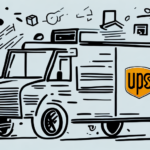Understanding USPS Insurance Fees
When shipping packages through the United States Postal Service (USPS), ensuring the safe arrival of your shipment is crucial. USPS insurance plays a vital role in protecting your valuable or irreplaceable items during transit. This article provides an in-depth analysis of USPS insurance fees, coverage details, and essential tips to make informed shipping decisions.
What is USPS Insurance and Its Importance
USPS insurance is a service that allows customers to safeguard their shipments against loss, damage, or theft during transit. By insuring your package, you protect your financial investment, ensuring that you receive reimbursement for the item's value if any issues arise.
- Protection Against Loss: Offers peace of mind by guaranteeing compensation if your package is lost.
- Coverage for Damage: Ensures that you are reimbursed for damaged items upon delivery.
- Financial Security: Protects the sender's investment in valuable or irreplaceable items.
According to the USPS Business Mail Safety report, insured packages have a higher rate of reimbursement, highlighting the importance of opting for insurance when shipping valuable items.
How USPS Insurance Works
Purchasing Insurance
To insure your USPS shipment, you need to complete an insurance form and pay the associated fee. The cost varies based on the declared value of the item, the destination, and the type of USPS service you choose.
Filing a Claim
If your package is lost or damaged, you can file a claim by providing proof of value, evidence of damage or loss, and relevant documentation such as receipts and photos. Once approved, USPS will reimburse the insured amount up to the declared value.
It's important to note that USPS insurance does not cover shipping costs or fees, and certain items like perishable goods or hazardous materials may not be eligible for coverage.
Cost of USPS Insurance
The cost of USPS insurance is determined by the package's value, destination, and selected service. Here are the standard rates:
- Up to $50: $2.50
- Up to $100: $3.00
- Over $100: Varies based on declared value
For detailed pricing information, refer to the USPS Insurance Rates.
Remember, insurance only covers the item's value, not the shipping cost. Always review the USPS insurance policy before purchasing coverage to ensure it meets your needs.
Limitations of USPS Insurance Coverage
Coverage Restrictions
USPS insurance has specific limitations, including:
- Maximum Declared Value: Up to $5,000 for domestic Priority Mail Express, Priority Mail, and Parcel Select.
- Ineligible Items: Perishable goods, firearms, hazardous materials, and certain high-value items like jewelry.
Coverage Scope
USPS insurance covers only the declared value of the item, not the cost of replacing it. For instance, if you insure an item for $100 that is actually worth $50, you'll receive $50 in case of a claim.
Additionally, insurance applies only to packages lost, damaged, or missing during transit. If the package is delivered but the contents are damaged or missing, USPS insurance won't cover it. In such cases, you may need to file a claim with the retailer or shipping company.
For more details on coverage limitations, visit the USPS Insurance Information.
Calculating Your USPS Insurance Needs
Assessing Item Value
Determine the accurate value of your items to ensure adequate insurance coverage. Consider factors like market value, rarity, and replacement cost.
Evaluating Risk Factors
Assess the likelihood of damage or loss based on the item's fragility and the shipping distance. Fragile items like electronics or glassware may require higher insurance coverage.
Additional Costs
USPS insurance covers only the item's value, excluding shipping fees or taxes. To protect these additional costs, consider purchasing extra insurance or alternative shipping methods.
For assistance in calculating insurance needs, contact USPS Customer Service.
Tips for Purchasing USPS Insurance
- Proper Packaging: Ensure your package is securely packed and labeled to prevent voiding insurance coverage.
- Accurate Valuation: Accurately assess and declare the item's value to avoid underinsurance.
- Additional Coverage: Consider purchasing extra coverage for high-value items beyond standard USPS limits.
- Track Your Package: Keep track of your shipment using the tracking number to monitor its status and simplify the claims process if needed.
Implementing these tips can enhance the security and protection of your shipments.
Filing a Claim with USPS Insurance
Step-by-Step Guide
- Check the status of your package using the USPS tracking tool.
- If the package is lost or damaged, gather evidence such as photos, receipts, and packaging materials.
- Fill out and submit a USPS claim form.
- Wait for USPS to review your claim.
- If approved, receive compensation up to the insured value of your item.
Be aware of restrictions and limitations, such as exclusions for certain items and maximum coverage limits. For comprehensive information, visit the USPS Claims Policy.
Understanding USPS Insurance Policies
Reading the Fine Print
Before purchasing USPS insurance, thoroughly review the policy's terms and conditions. Pay attention to:
- Coverage Limits: Understand the maximum coverage available for different services.
- Excluded Items: Identify items that are not eligible for insurance coverage.
- Claim Deadlines: Note the time frame within which you must file a claim after shipment.
Ensuring Adequate Coverage
Ensure that the coverage amount sufficiently protects the value of your shipment. Underestimating the value can lead to inadequate compensation in case of loss or damage.
For detailed policy information, refer to the USPS Insurance Policies.
Comparing USPS Insurance to Other Shipping Options
Alternative Providers
Other shipping providers like FedEx and UPS also offer insurance services. Here's a comparison to help you choose the best option:
| Provider | Maximum Coverage | Claim Process | Additional Services |
|---|---|---|---|
| USPS | $5,000 | Online or in-person claims | Signature confirmation, delivery confirmation |
| FedEx | $100,000 | Online claims with paperwork | Advanced tracking, insurance for additional fees |
| UPS | $50,000 | Online or broker-assisted claims | Extended tracking, additional coverage options |
Consider factors such as coverage limits, claim processes, and additional services when choosing a shipping provider. For more information, visit their respective FedEx Support and UPS Help Center.
Common Mistakes to Avoid with USPS Insurance
- Poor Packaging: Inadequate packing can lead to voided insurance claims. Always use strong materials and proper cushioning.
- Underinsuring Items: Declare the accurate value of your items to ensure sufficient coverage.
- Ignoring Policy Terms: Failure to understand policy restrictions can result in denied claims.
- Neglecting to Track Shipments: Not tracking your package can delay the claims process if issues arise.
By avoiding these common mistakes, you can enhance the protection and security of your shipments.
For more tips and information, refer to the USPS Help Center.
Conclusion
Understanding USPS insurance fees and coverage is essential for safeguarding your valuable shipments. By accurately assessing your insurance needs, following proper procedures, and avoiding common pitfalls, you can ensure the safe and secure transit of your packages. Always stay informed about the latest USPS policies and compare insurance options to make the best shipping decisions.






















